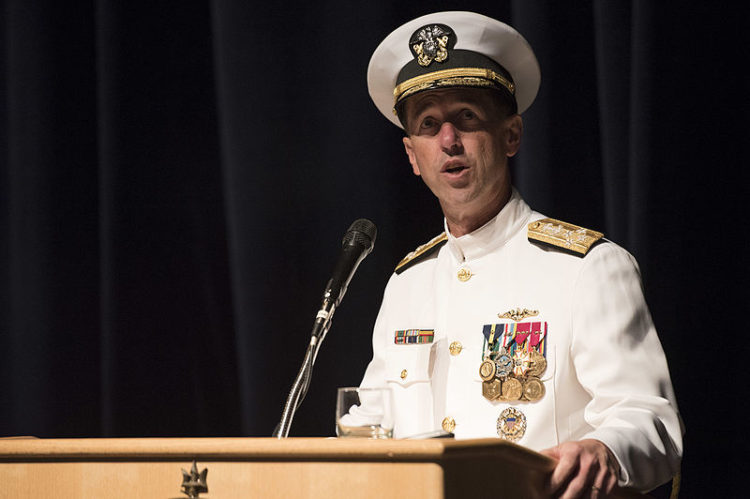Throughout nearly two full decades of combat, the special operations community has seen a dramatic shift in employment and operational tempo. Unlike in traditional wars, where special operations troops might be reserved for very specific mission parameters, the War on Terror has brought with it unique challenges that America’s Special Operations war fighters are uniquely suited to face. Complex environments, complex relationships with locals, and high risk mission sets all conspire on the battlefields of Iraq, Afghanistan, Syria, and even Africa to place SOCOM troops consistently at the forefront of the fight.
Now, departing Chief of Naval Operations John Richardson is ready to place the blame for a recent slew of high profile incidents involving Navy SEALs on this dramatic uptick in the SEALs operational tempo. Richardson, who has served in the Navy’s top spot since 2015, oversaw the branch during a particularly trying era that has included not only a series of crimes and allegations levied against the Special Operations community, but also a handful of deadly collisions between American warships and civilian vessels that claimed the lives of 17 sailors. These incidents, like the allegations of war crimes and regulation violations littering the SEAL community, have been the subject of heated debate within the Navy and beyond — with some seeing all of these issues as a byproduct of the nation’s longest stretch of active warfare in history, and others seeing all of these issues as a failure of Navy leadership.
“Your character is like a muscle. It sort of gets stronger when you train it, and then it gets fatigued when you strain it and you use it a lot,” Richardson told the Washington Post.
“If you think about when you and I go home each night, you know, we are with our friends and our families and those sorts of righting forces keep us centered, and it’s all reinforcing,” he said. “It strengthens our character. But when you get way forward-deployed for a long time, those forces aren’t as strong.”
Richardson points out that despite the publicity the SEAL community garnered with the war crimes trial of Special Warfare Operator Chief Edward “Eddie” Gallagher, the murder of a Green Beret that implicated both SEALs and Marine Raiders, sexual misconduct allegations and more, the Naval SEAL community has continued to meet and exceed expectations “in aggregate.” Richardson emphasized the importance of “the ethical dimension of what we do,” but was careful not to characterize the entirety of the SEAL community as troubled. Under Richardson’s purview, the Navy recently established new procedures aimed at curbing future infractions, like adding an administrative letter of reprimand for incidents that don’t justify a greater form of punishment to ensure a track record is established for troubled sailors.
There’s sure to be many more changes under the Navy’s new Chief of Naval Operations, Adm. Michael Gilday, as they continue to seek solutions to issues caused by so many years of continued combat operations. Richardson touched on this by saying that he will have failed the service if Navy crews deploying today are as ill-prepared as previous sailors have been, such as those aboard the USS Fitzgerald (DDG-62) and USS John S. McCain (DDG-56).
“Not a day goes by when I’m not asking myself that exact question because what an amazingly high price we paid for that — those 17 sailors who gave their lives,” he said.
Already have an account? Sign In
Two ways to continue to read this article.
Subscribe
$1.99
every 4 weeks
- Unlimited access to all articles
- Support independent journalism
- Ad-free reading experience
Subscribe Now
Recurring Monthly. Cancel Anytime.











COMMENTS